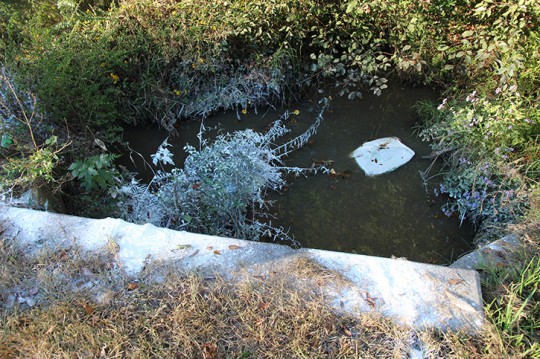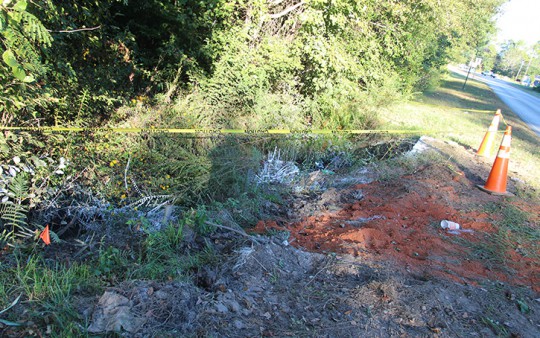Pollution Notification Plan Continues To Draw Objections
November 8, 2016
Despite some changes to reassure the business community, the Florida Department of Environmental Protection continued to hear objections Monday to a pollution-notification rule proposed in the wake of high-profile incidents in Pinellas and Polk counties that raised questions about state environmental regulations.
The proposed rule, ordered by Gov. Rick Scott, would require any business, county or city government responsible for a pollution incident to notify the public within 24 hours. It was developed after a major St. Petersburg sewage spill and after a sinkhole at a phosphate plant south of Lakeland sent toxins into the Floridan Aquifer and threatened drinking water.
Some revisions to the rule were released Friday after members of the public — primarily advocates for utility companies — testified at a series of workshops about concerns the proposal would saddle them with undue regulatory burdens and substantial new compliance costs.
Within 24 hours after the initial public notification, according to the revised language released Friday, the responsible parties would have another day to release specifics of the pollution’s likely effects.
The revisions also specify exactly how the news media would have to be notified: at least one local newspaper, by email or hand-delivered notice, and at least one local network television station, also by email or written correspondence.
The department also released a statement of economic impact to the affected industries.
The proposal “will not have a direct or indirect adverse impact on economic growth, private-sector job creation or employment, or private-sector investment of $1 million” over five years, according to the department.
But that prediction did not quell the worries of industry groups, which said business or local government in-house press shops were ill-equipped to handle the public notification aspect of the new rule.
“This is, I think, an undue burden on these companies. … We feel like notifying DEP and letting DEP notify the local governments would be the best course of action,” said Tisha Keller of the Florida Trucking Association.
David Childs, representing the Florida Chamber of Commerce and the Florida Water Environment Association Utility Council, stressed that the department should notify the public, as it has “toxicologists, biologists and communications staff, as well as the bully pulpit of the executive branch of state government,” unlike businesses and small local governments that might not have the resources to provide the notice.
Another consistent complaint from municipal and industry interests was that the rule had simply moved too quickly. Scott ordered the rule’s drafting in September.
Despite the ongoing concerns, the department has indicated it will continue according to its plan to begin finalizing the rule immediately after 5 p.m. Wednesday, when a public comment period formally ends.
“We certainly will take the comments that were previously provided, as well as those today, and the department will make a final decision on what the final rule will look like,” said Robert Williams, chief deputy general counsel at the department.
Pictured: The Town of Century had 500 gallon sewage spill into this ditch near the Century Woods Apartment on West highway 4 on October 20. NorthEscambia.com photos, click to enlarge.
Comments
4 Responses to “Pollution Notification Plan Continues To Draw Objections”





Sounds like a play by companies to get out of cleaning up their mess. I guess FaithinUS thinks that the taxpayers should have to pay for cleanup?
Increased costs? Why, bcuz you gotta tell the public when you screw up? That cuts no ice & you know it. Sounds like a good rule to me. Quit stalling.
Certainly, a STATE AGENCY tasked with “Environmental Protection” should be capable of handling this task, rather than hand it off to individual businesses.
What is the purpose of having an environmental agency if they aren’t going to DO anything?
Maybe Dick Scott has forgotten what it is he’s supposed to be running– an organization that SERVES THE CITIZENS of Florida, not a business where you hand off the tasks you don’t want to someone else~!
Definitely the spills should be reported to DEP and they notify the media or public if warranted if they are at the limit already in place. The DEP has the resources to evaluate the situation and release facts of the impact. Just like this Century Woods spill, the municipality needs to concentrate on repairing and maintaining the utility and be able to rely on the huge environment experts to do their job. Stay in their lane. No need to make a media frenzy unnecessarily.
Although now this is public I will say, the main reason for lift station pumps failure is usually oil and grease. If the tenants are dumping cooking oil down the sinks or tolit, it is directly causing the problem. Obviously things don’t dissapear, such as baby wipes, diapers, condoms, tampons. They clog up pumps.
Take some responsibility for the “joy” of being on a city sewer to take away your “unmentionables” Put trash in the trash and oil in a container in the garbage. It may affect you more in the future.
Would someone who has any iota of responsibility flush these things down a septic tank? No! If they have to pay a plumper to unclog their own pipe would they commit such atrocities? Maybe once, then not again.
As far as media does North Escambia qualify as a notification for the Town of Century as a newspaper if they pass that rule? It seems to have not satisfied the revenuers for the tax increase.
I am all for No pollution and public awareness but actually I can see where there is this opposition mentioned in this article.